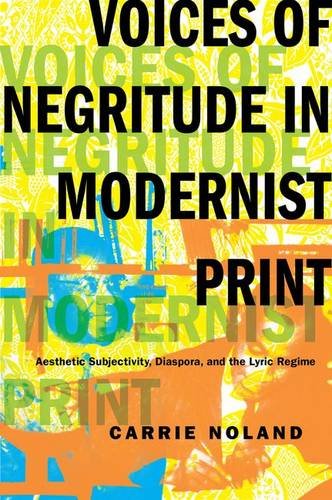

Most ebook files are in PDF format, so you can easily read them using various software such as Foxit Reader or directly on the Google Chrome browser.
Some ebook files are released by publishers in other formats such as .awz, .mobi, .epub, .fb2, etc. You may need to install specific software to read these formats on mobile/PC, such as Calibre.
Please read the tutorial at this link: https://ebookbell.com/faq
We offer FREE conversion to the popular formats you request; however, this may take some time. Therefore, right after payment, please email us, and we will try to provide the service as quickly as possible.
For some exceptional file formats or broken links (if any), please refrain from opening any disputes. Instead, email us first, and we will try to assist within a maximum of 6 hours.
EbookBell Team

5.0
20 reviewsCarrie Noland approaches Negritude as an experimental, text-based poetic movement developed by diasporic authors of African descent through the means of modernist print culture. Engaging primarily the works of Aimé Césaire and Léon-Gontran Damas, Noland shows how the demands of print culture alter the personal voice of each author, transforming an empirical subjectivity into a hybrid, textual entity that she names, after Theodor Adorno, an "aesthetic subjectivity."
This aesthetic subjectivity, transmitted by the words on the page, must be actualized―performed, reiterated, and created anew―by each reader, at each occasion of reading. Lyric writing and lyric reading therefore attenuate the link between author and phenomenalized voice. Yet the Negritude poem insists upon its connection to lived experience even as it emphasizes its printed form. Ironically, a purely formalist reading would have to ignore the ways formal―and not merely thematic―elements point toward the poem's own conditions of emergence.
Blending archival research on the historical context of Negritude with theories of the lyric "voice," Noland argues that Negritude poems present a challenge to both form-based (deconstructive) theories and identity-based theories of poetic representation. Through close readings, she reveals that the racialization of the author places pressure on a lyric regime of interpretation, obliging us to reconceptualize the relation of author to text in poetries of the first person.